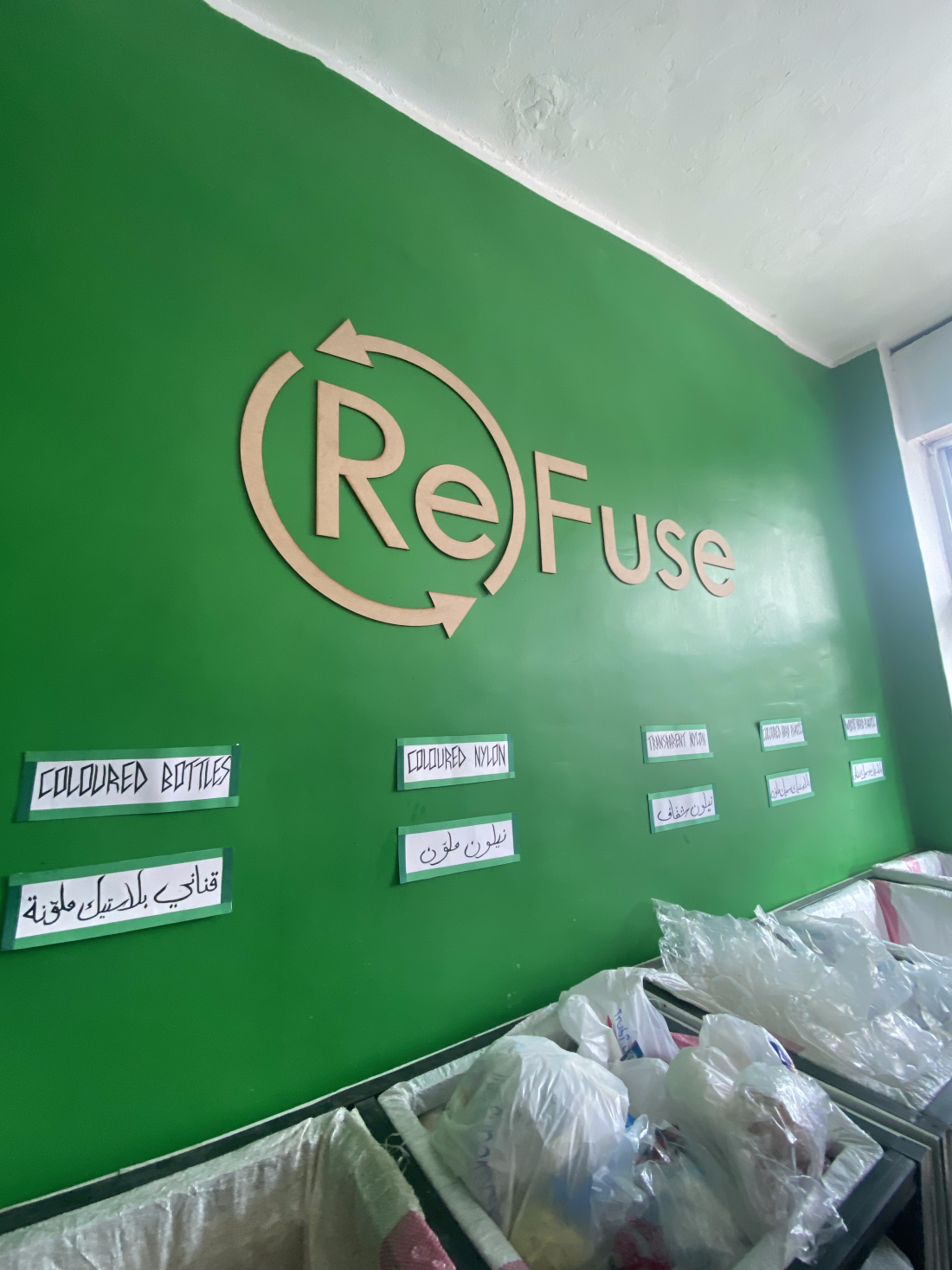CLIMA awards grants to four social enterprises in Lebanon to develop innovative and green businesses

Within the framework of the CLIMA project, four funds were allocated to promote circular economy initiatives in Lebanon and enhance environmental and economic development. The initiative awarded with grants four green social enterprises operating in different areas of the country. Each enterprise will receive a grant of up to 5,000 euros in addition to access to expert technical support and mentoring. The funds will increase the capability of start-ups and businesses already established in the country and create decent jobs for women and youth.
Representatives of the project partners from Arcanciel and COSPE visited the granted enterprises on June 7th to get to know them better and develop an action plan based on the impacts they aim to achieve over the upcoming months.
Suntrepreneur, the first of the awarded enterprise, based in Hadath, is a web platform which allows home and business owners to have access to solar photovoltaic systems, installed by certified electricians in their area, which will be launched thanks to the CLIMA grant. Customers can choose among proficient technicians close to them geographically. Suntrepreneur's social mission is to target young electrical technicians who have just graduated, eager to work in the photovoltaic sector, and empower them to start their own or secondary business. The platform also takes care of the after-sales service by offering the customers a clear communication channel with the technicians. Suntrepeneur thus connects traders who want to find new sales channels for their assets as well as financial institutions offering green loans and lease financing.
Plastic Lab stemmed from the idea of two brothers, intends to minimize the presence of plastic waste in nature and in landfills by replacing wood, steel and concrete with recycled plastic, to produce construction material but also furniture and design products. In their warehouse, located in the industrial zone of Halat, type 2 to type 5 plastic is collected from local businesses. Afterwards the raw product is separated, shredded, washed and finally used to create three main products for sale: plastic sheets, beams and bricks as a substitute to traditional materials. The products created are at least 15% cheaper than similar products made from conventional materials. With the grant from the CLIMA project, Plastic Lab plans to purchase a CNC Router Machine capable of cutting plastic at a speed and precision greater than a human operator. The purchase of the machine will also enable the creation of two new jobs as well as the development of a design department. The goal is to improve the quality of their products, making it easier to sell directly to retailers and reduce production costs. In addition, they plan to expand their range of catalogue products (stools, tables, benches, shelving, etc.).
Beirut-based start-up ReFuse also works with recycled materials. ReFuse first collection center, located in the densely populated neighborhood of Bourj Hammoud, works with unserved communities exposed to waste hazards. The cash4trash initiative currently implemented, offers neighborhood residents and businesses, the opportunity to bring in their waste to the collection point and receive monetary compensation in return. Various types of plastic, papers, cardboard, aluminum, metals, expired medicine and second-hand items are weighed, sorted, and stored on the spot. The collected materials are later sold to local industries in need of high-quality recyclables, minimizing transportation costs. Revenue from this sale is used to reward people in cash or to fund local community projects, increasing environmental awareness of local inhabitants. The monetary value of the materials collected is recorded through a software and can be monitored by users on their electronic wallet, through the ReFuse app. The CLIMA project grant will be used to facilitate the opening of a new collection point in another unserved area in Beirut and the employment of two new members of staff.
Roof and Roots, based in Tripoli, focuses on producing sanitary napkins by replacing traditionally used materials (cotton and plastic), which are very expensive and difficult to purchase and import in Lebanon, with recyclable fiber made from the banana trees. The idea came about as a result of the crisis that affects the country, following the lift of subsidies on several necessities, including tampons. "Rose" sanitary napkins are being produced using a machine and then folded manually. The product, which is cheaper than traditional tampons, is sold door-to door to vulnerable, unemployed, housebound and refugee women. Funds obtained from the CLIMA project will enable the purchase of a new three-layers automatic sanitary pads machine, imported from India, that will process banana fiber and will be able to recycle the product leftovers. In the upcoming six months Roof and Roots will be able to hire four new women employees, who will be assigned to the use of the new machinery, after receiving training from the Indian supplier. In addition, a second-hand car will be purchased, and a driver will be hired for product distributions.
CLIMA's grant fund will help improving the services and capabilities of the awarded green businesses, building on their existing capacities. Furthermore, the funds will allow the social enterprises to adequately respond to the needs of the communities in which they operate and create new, decent, inclusive and sustainable jobs, involving women and youth.







